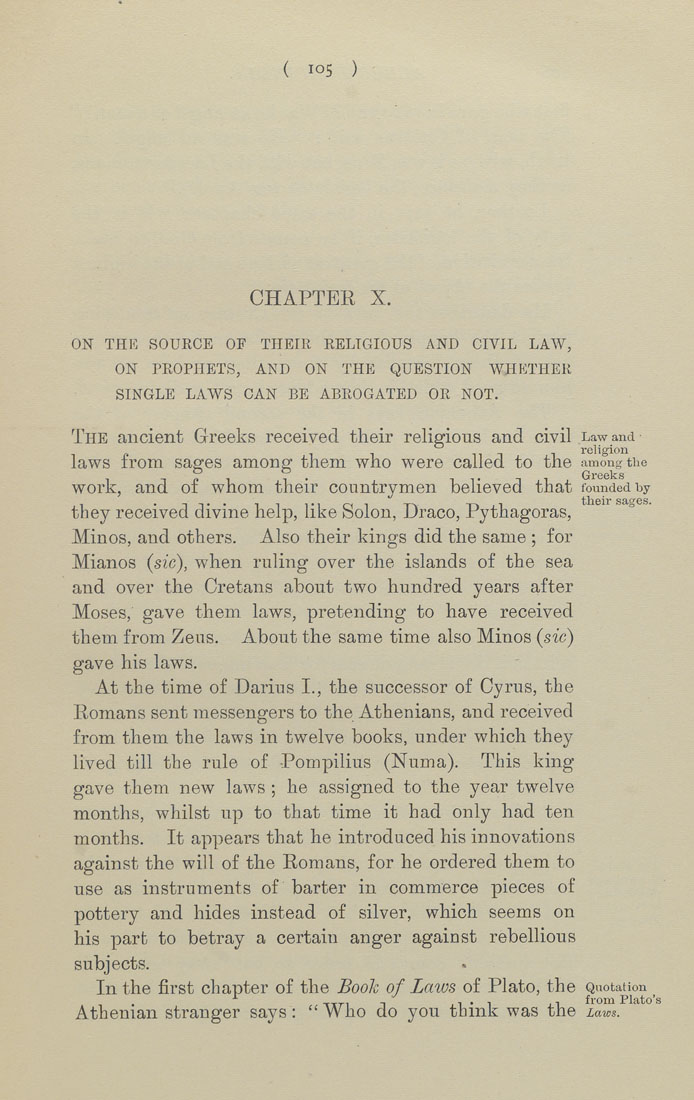Bīrūnī, Muḥammad ibn Aḥmad, Alberuni's India (v. 1)
(London : Kegan Paul, Trench, Trübner & Co., 1910.)
|
||
|
|
|
|
| Page 105 |

( I05 ) CHAPTER X, ON THE SOURCE OF THEIR RELIGIOUS AND CIVIL LAW, ON PROPHETS, AND ON THE QUESTION WHETHER SINGLE LAWS CAN BE ABROGATED OR NOT. The ancient Greeks received their religious and civil Law and 1 r- 11 11 1 1 religion laws from saa^es among them who were called to the among the Greeks work, and of whom their countrymen believed that founded by they received divine help, like Solon, Draco, Pythagoras, Minos, and others. Also their kings did the same ; for Mianos (sic), when ruling over the islands of the sea and over the Cretans about two hundred years after Moses, gave them laws, pretending to have received them from Zeus. About the same time also Minos (sic) gave his laws. At the time of Darius I., the successor of Cyrus, the Romans sent messengers to the Athenians, and received from them the laws in twelve books, under which they lived till the rule of Pompilius (Numa). This king gave them new laws ; he assigned to the year twelve months, whilst up to that time it had only had ten months. It appears that he introduced his innovations against the will of the Romans, for he ordered them to use as instruments of barter in commerce pieces of pottery and hides instead of silver, which seems on his part to betray a certain anger against rebellious subjects. In the first chapter of the Book of Laws of Plato, the Quotation _ ..,__, -, 1-1 .1 from Plato's Athenian stranger says: " Who do you think was the Laws. |
| Page 105 |







